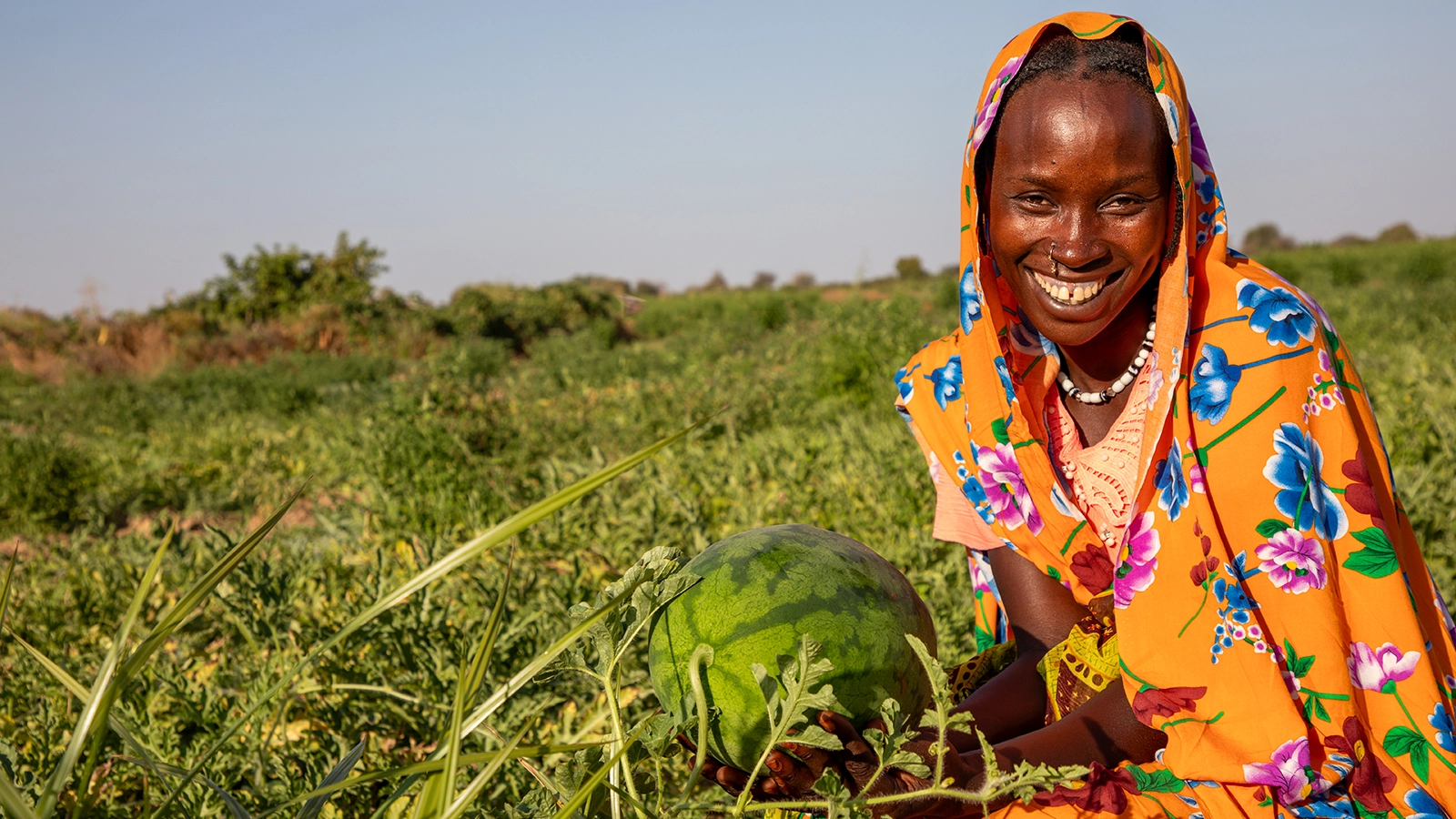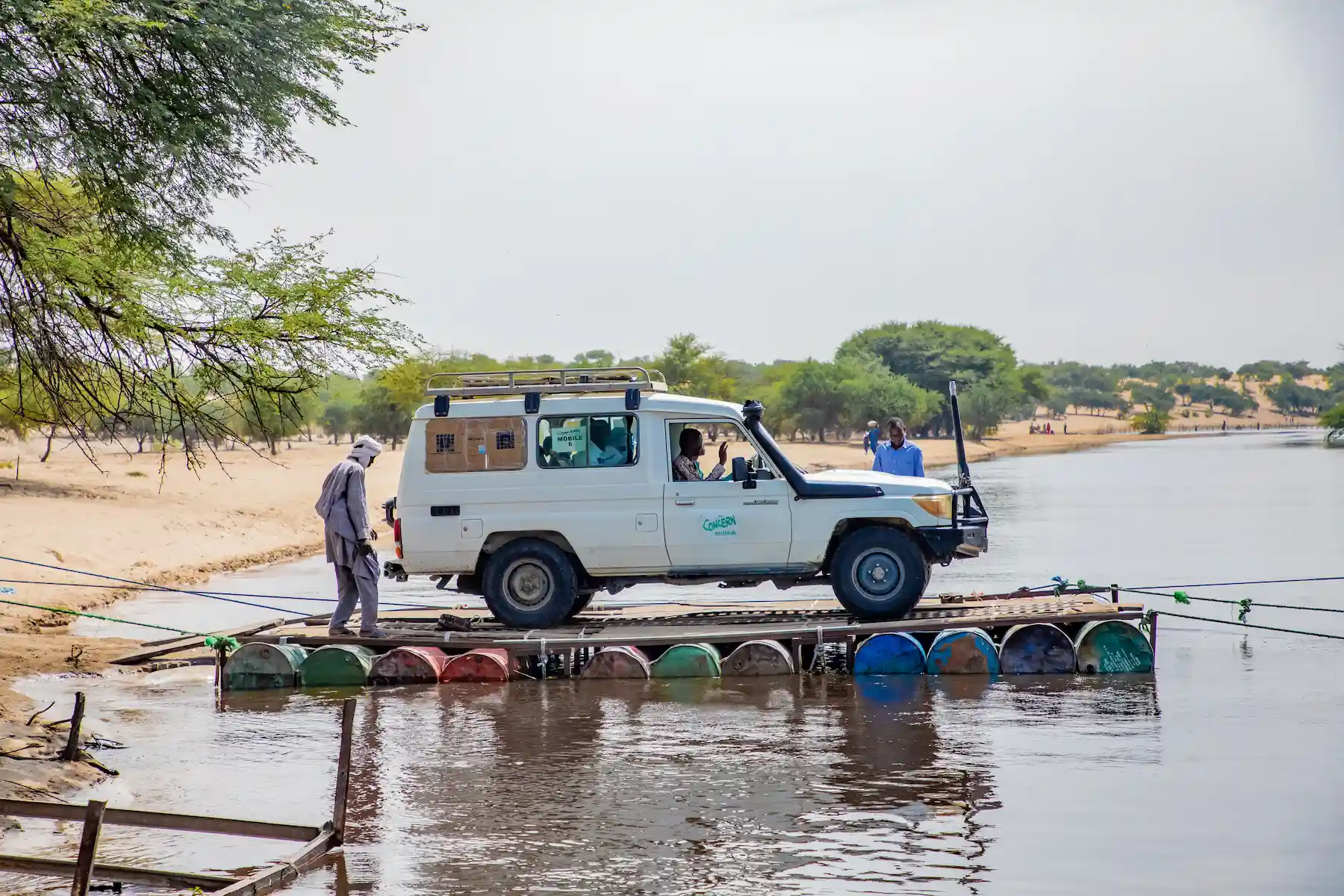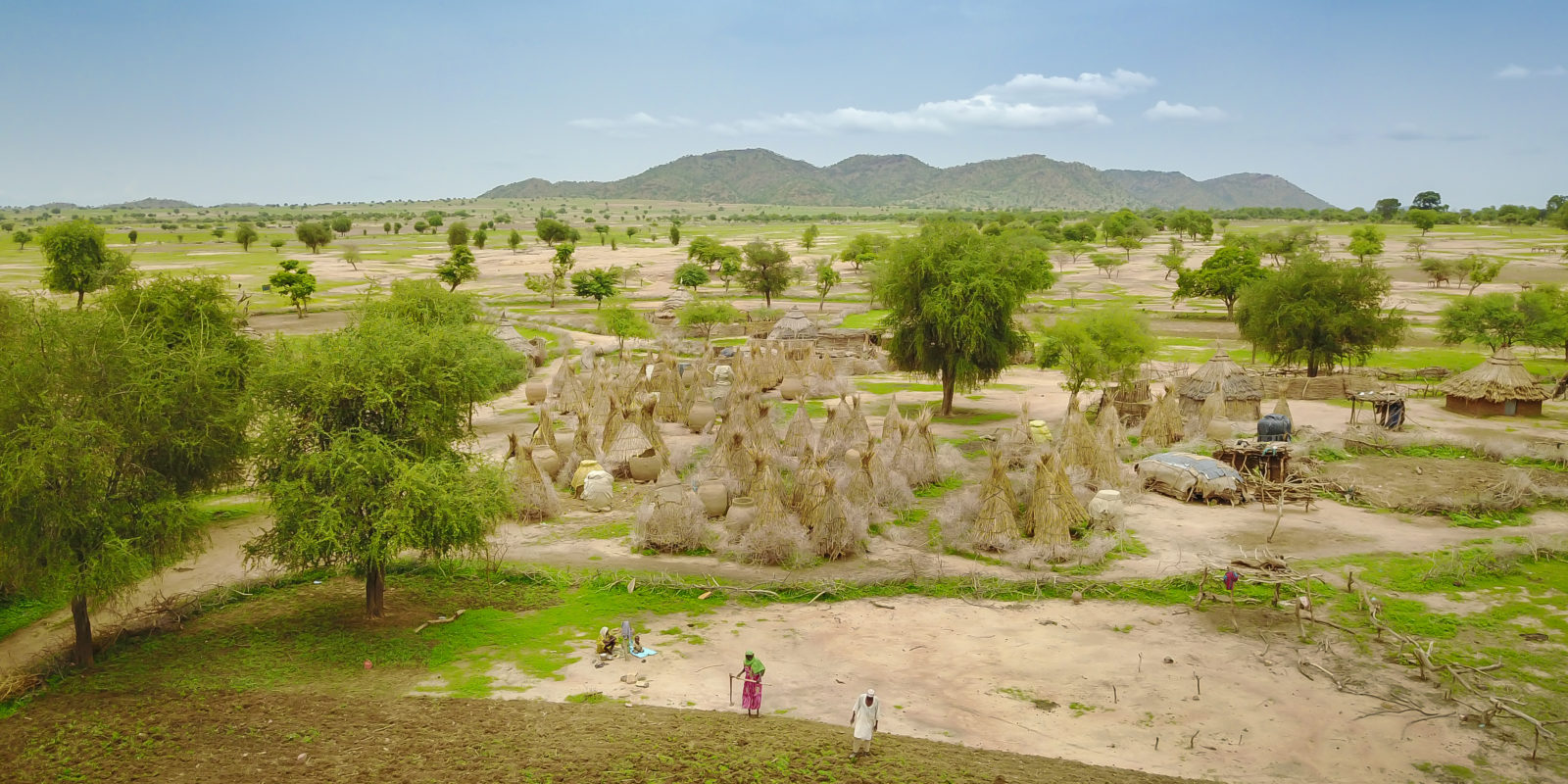Despite numerous challenges, including “an unprecedented food emergency,” Concern is working with Chadians across the country to fight hunger with goats, fish, and peanuts (and more).
“My childhood was good when you compare it to the life we are living now. A lot of things have changed and life has become too hard. Even getting food has become very hard,” says Salmata Abukar, a 50-year-old mother of eight in Chad’s Lac region.
A landlocked country roughly three times the size of California, Chad sits in the center of Africa’s Sahelian region and at the center of a crisis driven by climate change and regional conflict. On the 2024 Global Hunger Index, it ranks as the third hungriest country in the world, just behind Yemen (126) and Somalia (127). The situation grew more complicated last April when Chad quickly became one of the world’s largest host countries for refugees fleeing conflict in neighboring Sudan. Its refugee population surpassed 1.1 million at the beginning of 2024, with pressure for resources high in host communities.
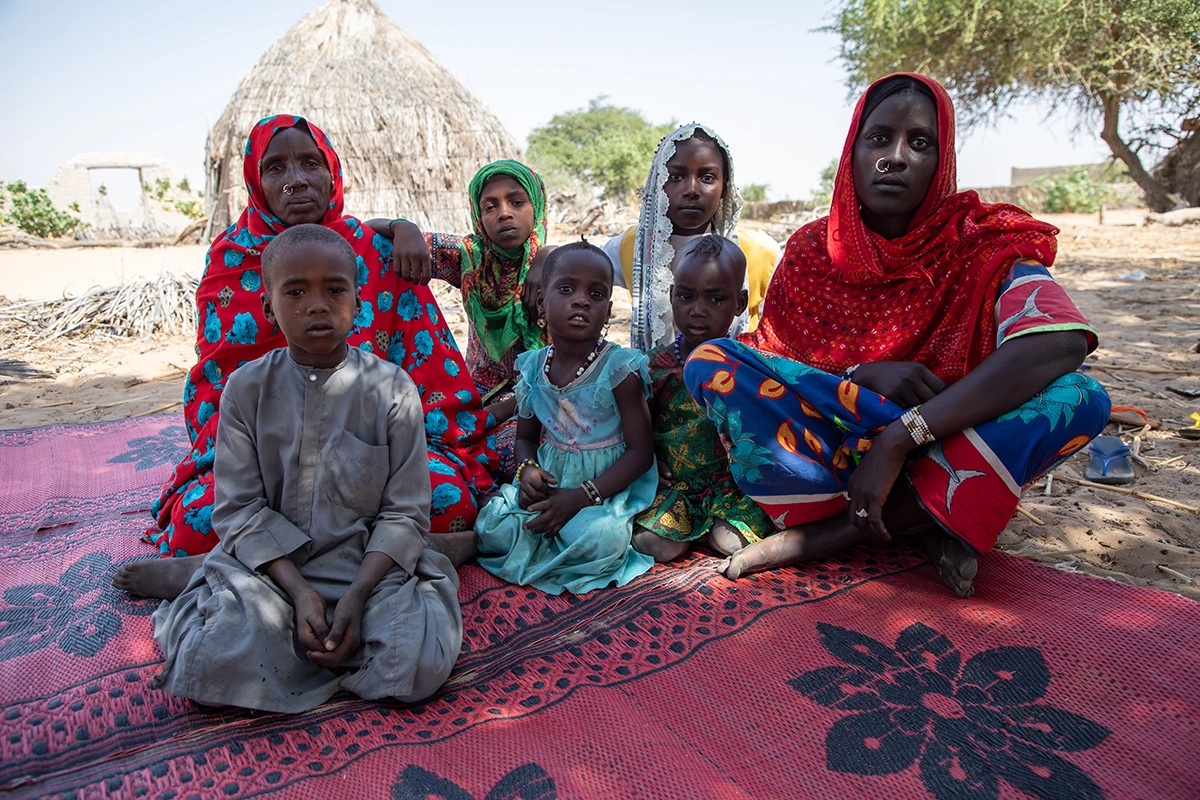
This has been a crisis years in the making, with 2024 marking the country’s fifth consecutive year of severe food insecurity. The Cadre Harmonisé, a food security analysis run in partnership with the Integrated Food Security Phase Classification (IPC) recorded in March 2024 that food insecurity was up 240% compared to the same period in 2020. In February, the government declared a food security and nutrition emergency. At the time, the Minister of Public Health, Dr. Abdelmadjid Abderahim Mahamat said: “Our country is facing unprecedented food insecurity, exacerbated by multiple crises including a massive influx of refugees and insufficient agricultural production due to the effects of climate change.”
Run dry
To get a sense of how much the country has been impacted by climate change, it’s helpful to zoom in on the Lac region, part of the larger Lake Chad Basin. An outline of Chad looks like a face in profile. In this image, the Lac region sits in the west, at the tip of the nose, bordering Lake Chad from the north and also sharing international borders with Cameroon, Niger, and Nigeria. The basin’s namesake lake serves these four countries.
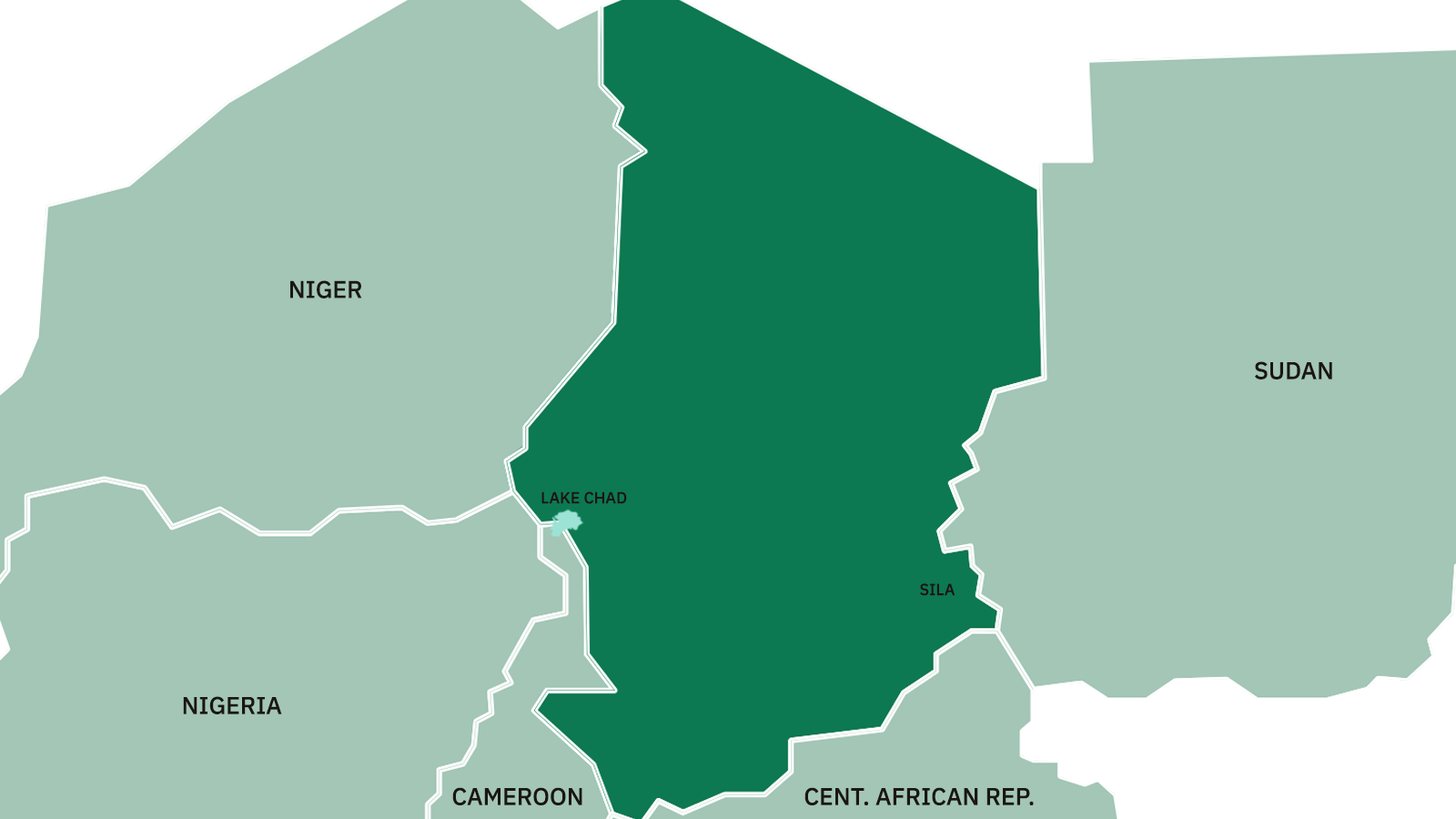
The Lake Chad Basin is home to approximately 45 to 50 million people, roughly the combined population of New York, Pennsylvania, Illinois, and Ohio. The majority of residents (many of whom have been displaced to this region after fleeing conflict in other parts of their countries) are fishermen, farmers, and pastoralists — meaning that their income and food security are both tied to the land and the climate. Since 1963, however, the lake has shrunk by 90% of its original size. This has led to decreased welfare in all four countries, however the World Bank reports that the losses are 50% higher in Chad.
Across the Basin, more than 10.6 million people require humanitarian assistance, including 6.2 million who face food insecurity. “My childhood was good when you compare it to now,” says 35-year-old Hawa Abakebir, a mother of seven “In the past, there was freedom of movement for our parents. They could even go to the Nigeria side of the lake in search of fish. But now, because of insecurity, we cannot do that anymore.” It got to the point that the best option for fishing families like Hawa’s was to go to a market, buy fish, and re-sell it locally.
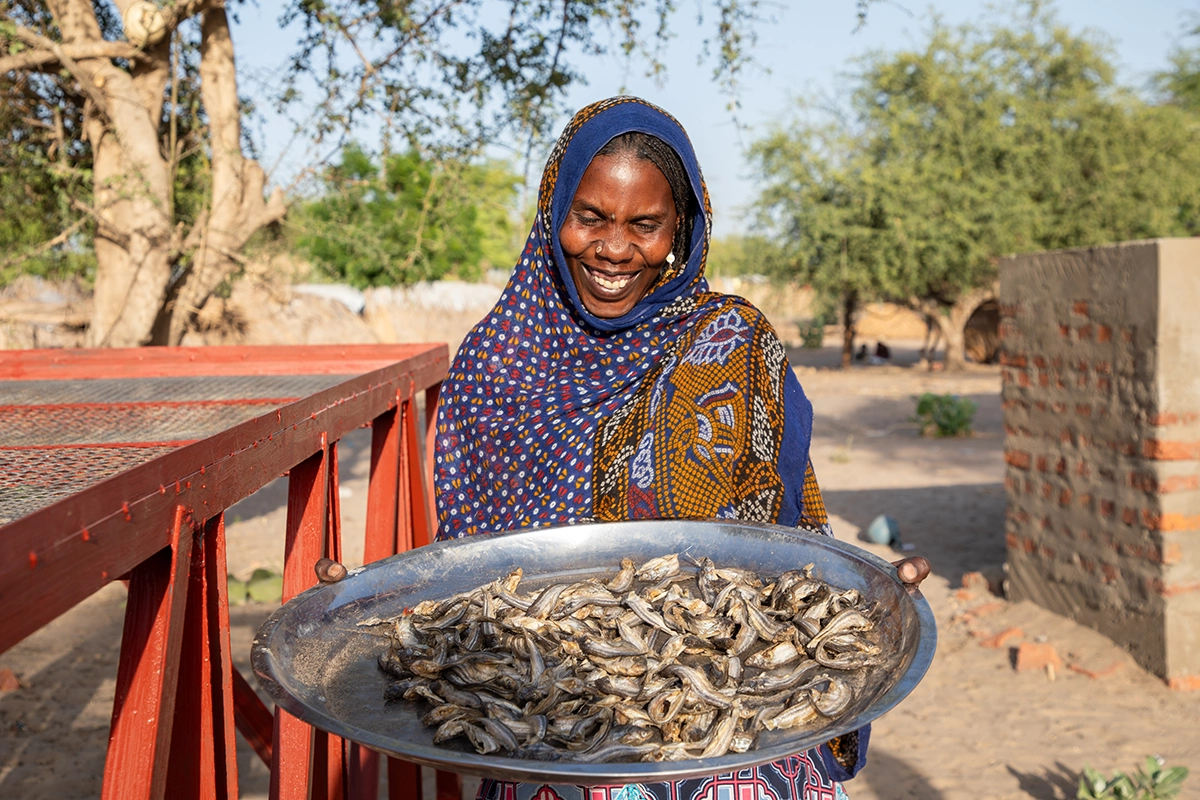
In Ndjati village, Salmata’s home, rainfall has been an issue in the last few years. During the last harvest “we did not even manage one full bag of corn. Sometimes, if we are lucky, we can eat two or three times a day, but the quality is not always good.”
Salmata adds: “We are just trying our best to put food on the table.”
Responding to a chronic humanitarian crisis
Concern began working in Chad in 2007, and many of the issues that first brought us into the country — including climate change and conflict — continue to this day. In the nearly 20 years since, our approach has become more and more about working with families and communities to live with the elements of this crisis that are beyond their control so that they can build resilience against the known unknowns of a protracted, multi-faceted emergency.
A recent project that we’ve launched, Chronic Humanitarian Crisis, basically does what it says on the tin. The Irish Aid-funded program is designed to help Chadians (particularly in the Lac region) build economic and food security by supporting market gardening and artisanal fishing groups. Our goal is to help people like Hawa and Salmata regain some of the ease and security of their childhoods (and then some) despite the landscape changing both figuratively and literally.
“It’s a two-pronged project,” explains Concern’s Food Security Programme Assistant in the Lac region, Badoum Aristide. “There’s a food safety and livelihoods component, and the second component is health and nutrition.”
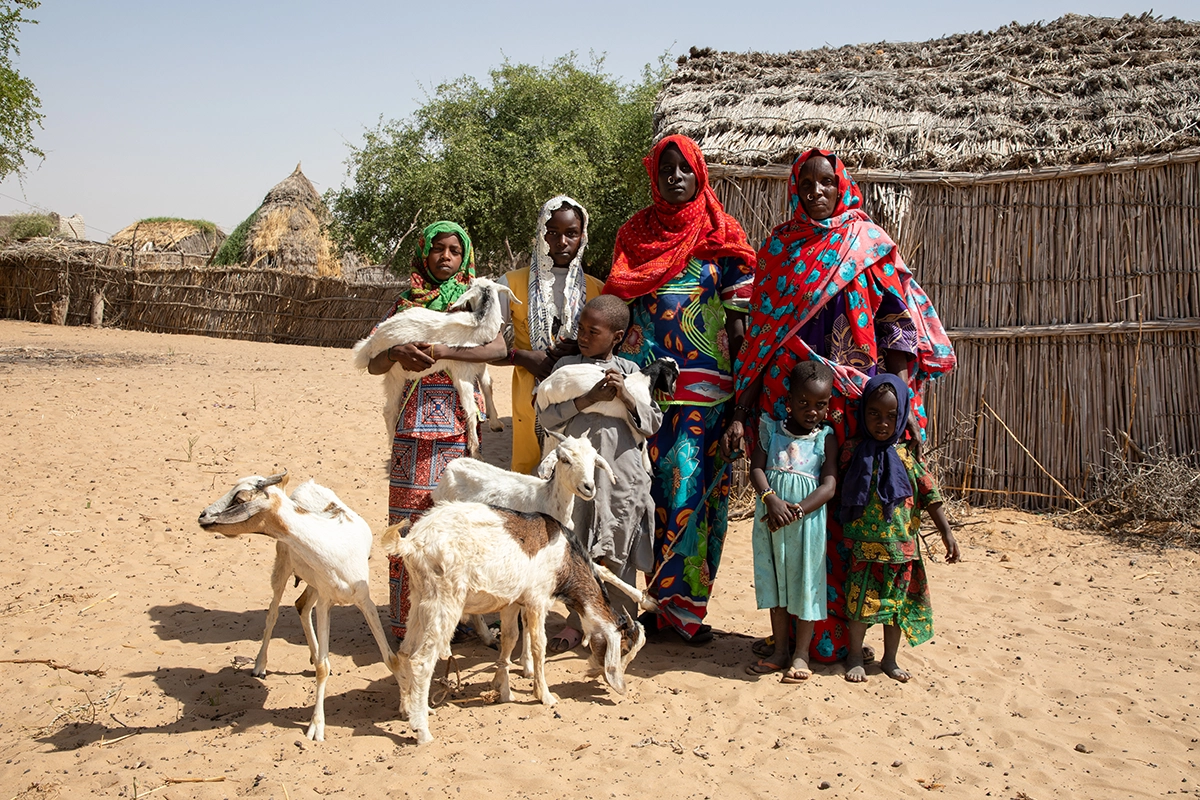
The GOAT
In Salmata’s village, the Concern team selected 15 women to participate in this pilot project, giving each of them three goats. This wasn’t a random distribution; goats were a cornerstone of the project. The Lac region is arid, meaning that agriculture is more and more challenged. However, as Aristide points out, it also “has a very rich biomass,” with enough grass for goats to eat.
In each village participating in the project, the goat owners were also trained in animal first aid (offsetting against another kind of known unknown), which has helped the new neighbors grow from 45 to 68.
“Life is very different now to how it was in the past. We even get some milk from the goats and that makes us very happy,” says Sana Gana Ali, a 40-year-old mother of six who also lives in Ndjati Village and whose herd of goats has grown from three to six.
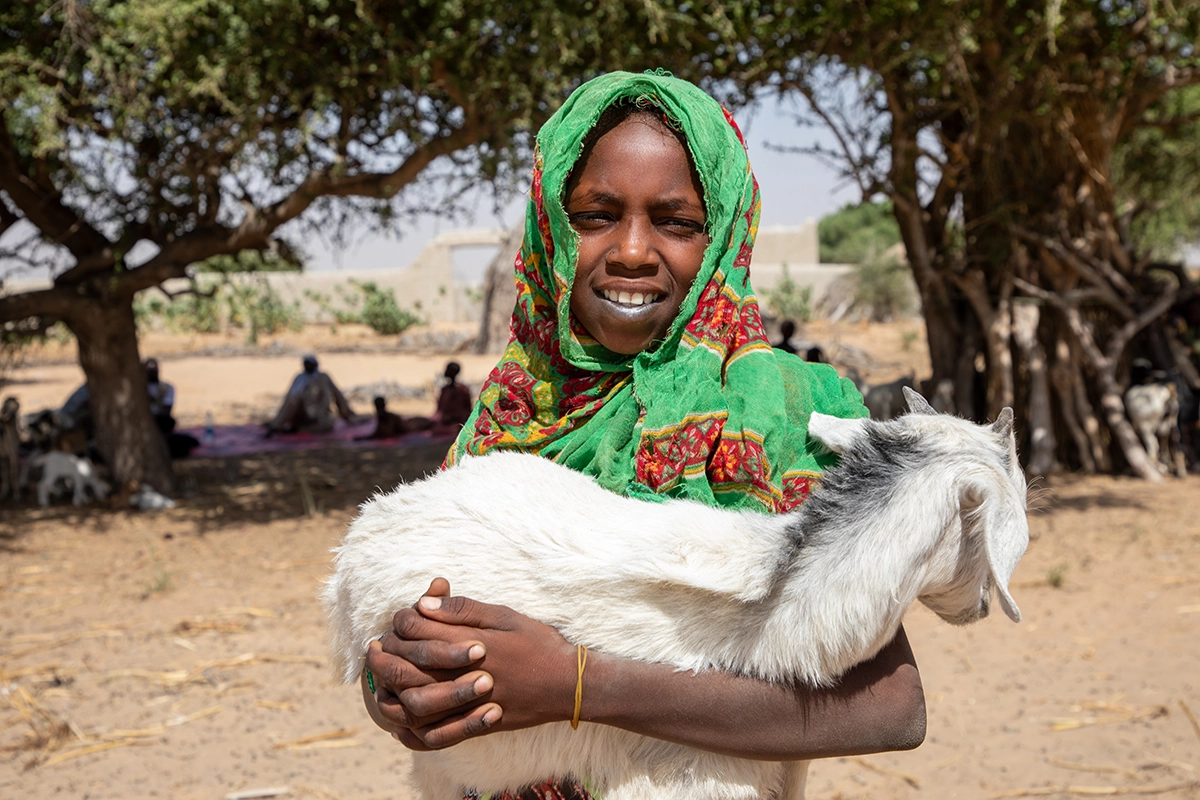
Nothing but nets
Concern also worked with members of the fishing communities in the Lac region to help them do what they do best: fish. Providing fishing nets to people like Hawa was a simple change that had a large impact on their livelihoods. “This has made our life much better,” Hawa says of being able to fish on her own.
With this bump in income, Hawa has been able to cover the fees to send her children to school. “We are even eating better now compared to the past. We eat three times in a day…[and] we can even change the type of food we eat when we want to. That was not possible in the past.”
As part of the CHC program, participating villages formed local fishing associations. Hawa was elected president of her association, a role that fits her like a glove. She spoke with pride of what they've accomplished so far as a collective: “I am happy that now when we catch a lot of fish, we can give it to our members at a cheap price and they can go and sell it in the market for a profit,” Hawa adds. “It has enabled us to save money and now we also have a savings group together as members of the association.”
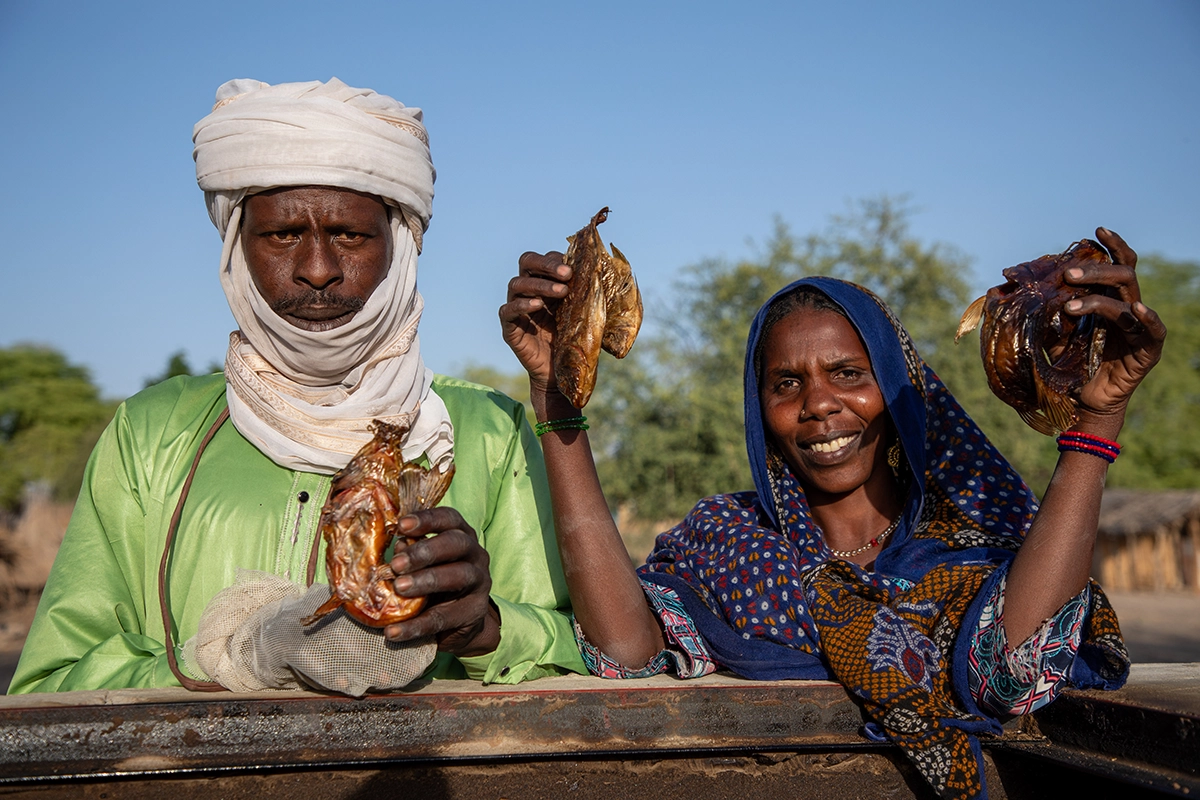
Thinking locally, acting nationally
CHC is just one of the programs Concern is currently running in Chad to address the country’s hunger crisis. On the other end of the country, the southeast region of Sila faces its own challenges (including those that have come from an influx of refugees escaping conflict in Sudan).
There, Concern has been running a variation on our traditional Graduation approach to ending extreme poverty. This approach has traditionally supported people living in extreme and chronic poverty. Green Graduation is a way of aligning the approach with the climate realities we are now facing nearly 20 years later. Developed in 2022, we began implementing this new approach in seven countries in 2023 — including Chad.
Mahadia Bahar Gamar’s family was one of 2,400 selected for our initial run of Green Graduation in Sila province. She joined a Village Savings and Loans Association that was established in her community as part of the program, receiving business training and developing a mutual support network not unlike the groups formed as part of the CHC program in Lac province. She also received a series of cash transfers (which she used to cover her children’s school fees).
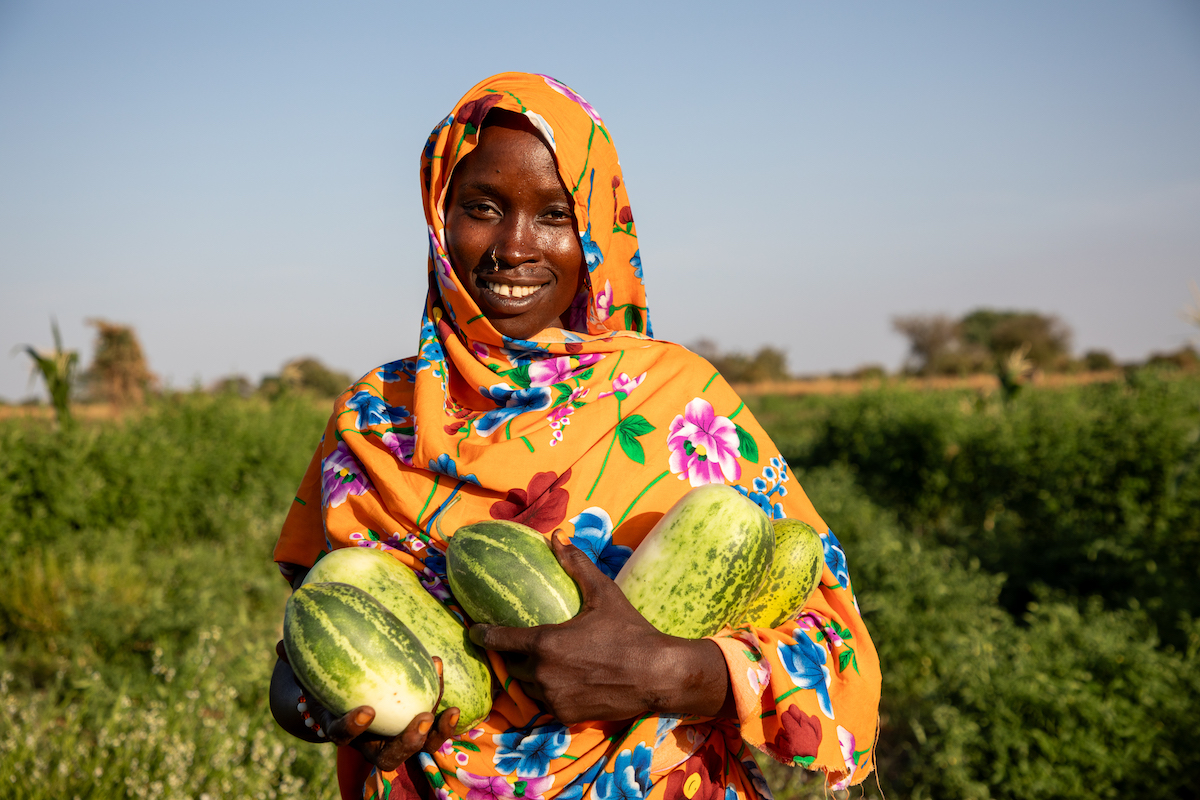
No longer a matter of luck
A key focus of Green Graduation, however, has been on working with farming families like Mahadia’s to develop resilience against the realities of climate change, both now and in the future. “We never used to have the knowledge we now have on gardening,” she says from her garden. “We would just work on our farms, and we did not have much else to do… When there was rainfall, we would go and plant, and if someone planted well, they would harvest and make some money from selling in the market. When there was no rainfall, we would stay like that.”
Now, it’s no longer a matter of luck. Using Climate Smart Agriculture techniques, Mahadia was able to grow watermelons, beans, tomatoes, cucumbers, and peas. The money from selling these crops at the market has helped ensure that all of Mahadia’s children attend school (her VSLA is also ensuring that the teachers get paid). But the harvests also show up on her family’s table, providing her family a diverse and nutritionally rich diet. Mahadia recently diversified her sources of income by purchasing a peanut grinding machine. She provides grinding services for her neighbors for a fee, part of which goes back into the VSLA.
“In the past, we would only have one meal and go to sleep,” she says. “We would only have asida (a fortified grain or flour pudding, usually made with butter and honey), and we would struggle to afford tea to drink with it.” Now, she adds, “we can make rice for breakfast, prepare asida for lunch, and cook vegetables for supper.”
They also have plenty of tea.
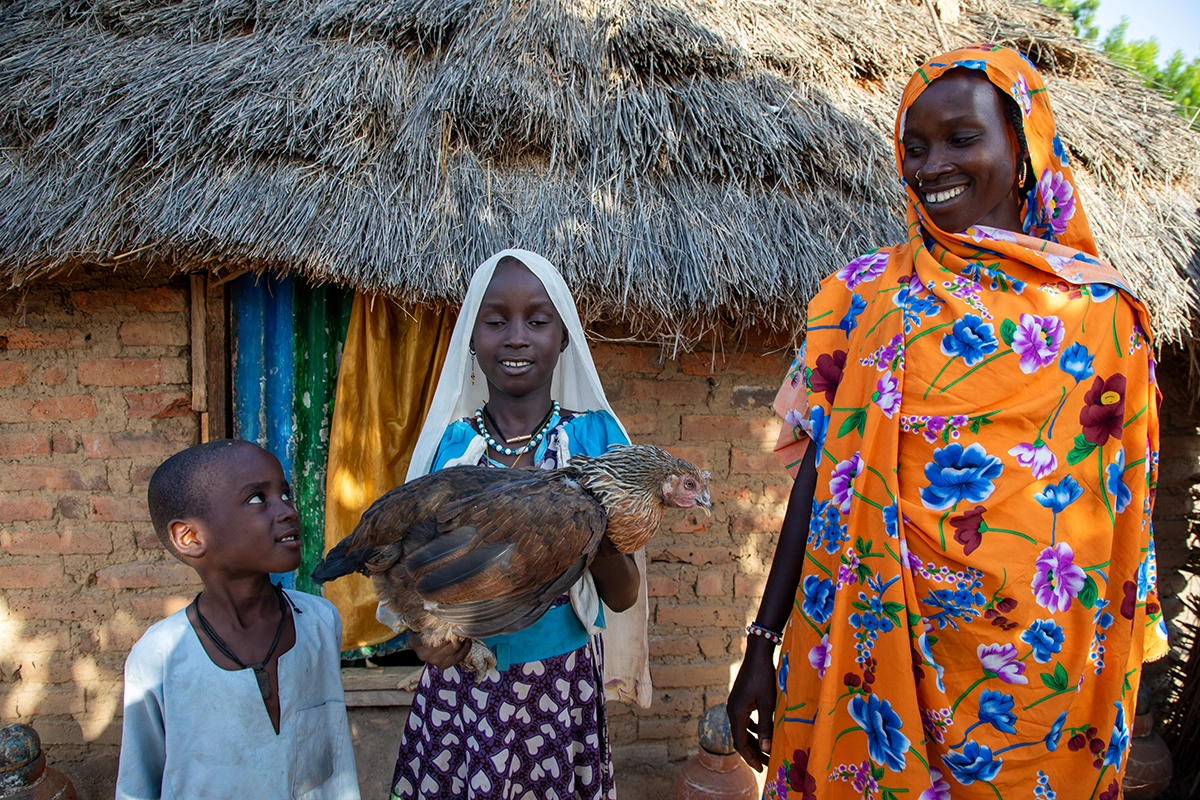
Hunger in Chad: Concern’s response
Food and nutritional security is a key element of Concern’s work in Chad across all sectors and we have worked with Chad's Ministry of Public Health since 2017. Last year, we supported nearly 133,000 Chadians with improved health and nutrition services, and our cure rates for cases of severe acute malnutrition in the country were over 97%.
Concern Chad’s livelihoods programs also incorporate food security and agriculture, to ensure that participants have the tools they need to earn a sustainable living, learn new skills, improve the yield and nutritional value of their harvests, and generate more income through small businesses. These harvests and incomes in turn lead to greater food and nutritional security at home.
We are part of two projects in the Lac region, Concerted and Inclusive Development in the Lake Province (DECILAC) and Chronic Humanitarian Crisis (CHC), both focused on inclusively investing in food security and strengthening local markets. In Sila, we are running both Green Graduation and the Program for the Economic and Social Resilience of Eastern Chad’s Populations to Conflict and Climate Change (RESPECCT), which take holistic approaches to economic development and income generation (especially for women) but have a direct impact on addressing the hunger crisis.

